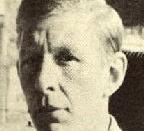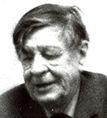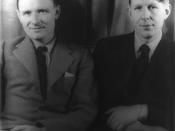The 20th Century witnessed the rise of nationalism. Government started to justify many of its actions, unimaginable before, as for the good of the nation. The government played a deeper role in people's personal life, probing and examining every minute detail in search for any "unpatriotic" crime. Individuals who met the government's standards were lauded as model and patriotic citizens. Those who did not, such as those in the Red Scare of 1950s, were ostracized. This alarmed a generation of writers who wrote to protest this "new" society. W. H. Auden was among one of these writers. In his poem "The Unknown Citizen", through the use of irony, allusion, tone and word choice, the author expressed his concerns for society that sat passively while its government became more powerful and impersonal, restricting personal freedom and happiness.
The speaker of "The Unknown Citizen" is a faceless government official, who is relating a report of a man's life to someone who asked if the man was happy and free.
The poem carries a voice of very ironic tone, sometimes become sarcasm. The speaker describes the man as a "model citizen" who "in a modern sense of an old-fashioned word" is "a saint." When asked if the man "was free and happy", the speaker responds that "the question is absurd, had anything been wrong" he "should certainly has heard." The irony of the situation is that the very action of probing into the man's personal life by the official that is absurd. The confidence of the official that he has known everything about the man's life is a false one. The irony is that the official has no knowledge about the man's life. All he knows are dry facts. He does not know the private feelings of the man. And...


